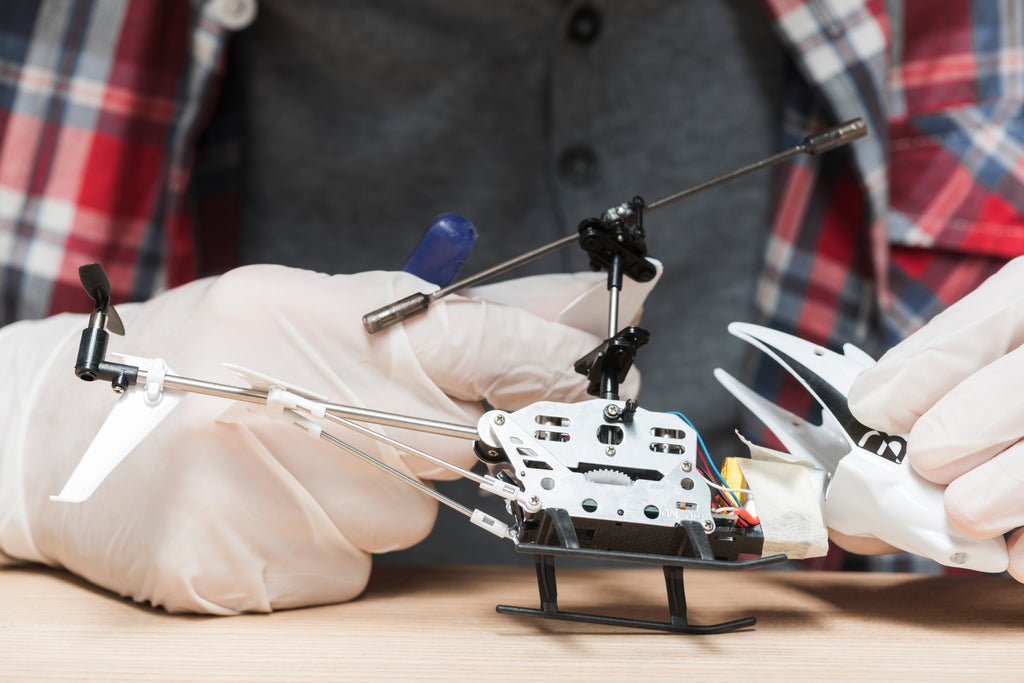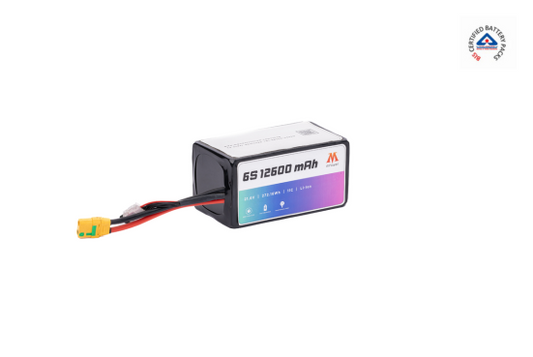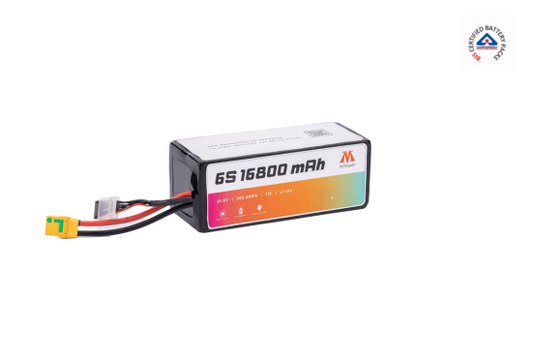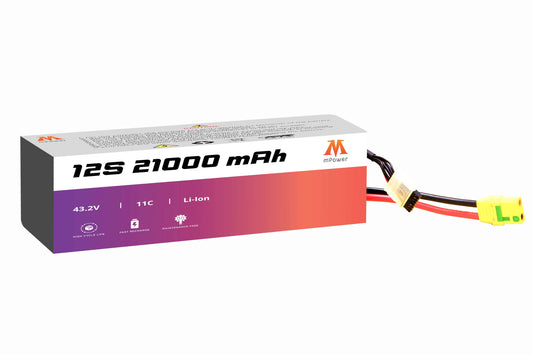
Drones, also referred to as unmanned aerial vehicles, are continuously evolving with the advancement in technology. The rapid advancement in drone technology demands the ultimate choice of drone battery to achieve optimal performance. The optimal battery also ensures efficiency and reliability of the drone. Li-ion drone battery (Lithium-ion batteries) have been the standard power source for drones for a period of time. As it offers high energy density and lightweight construction. However, alternative battery technologies are rising as promising solutions in order to improve performance and safety aspects of drone technology. This blog will help you to identify differences between lithium-ion batteries and alternative battery technologies for drones. Besides, we will also explore the benefits of lithium-ion batteries and comparison between lithium-ion and solid-state batteries.
Lithium-ion Batteries: A Standard Drone Battery Solution
Lithium-ion batteries have been the standard power source for drones for their unmatched energy density, lightweight construction, and ultimate reliability. As they offer a high energy-to-weight ratio, this allows drones to achieve longer flight times and carry heavy workload. It is crucial for various drone applications, involving surveillance, agriculture, and aerial photography. As we know, lithium-ion batteries are lightweight which contribute to the overall agility of drones. This enables them to navigate tight spaces and easily perform intricate tasks.
What’s more, lithium-ion batteries are rechargeable, this offers cost-effective solutions for drone operations. The availability of reputable lithium-ion battery manufacturer ensures a steady supply of high-quality batteries that cater to the specific needs of drone applications. This reliability and consistency are critical for drone operators. Moreover, Li-ion drone battery provide fast charging ability that minimize the downtime and maximize the productivity during missions.
Alternative Battery Technologies For Drones Batteries
While lithium-ion batteries have proven to be an optimal source of power for drones, alternative battery technologies are gaining traction. They are offering potential benefits in terms of performance and efficiency. One such alternative is solid state batteries. Solid-state batteries replace liquid electrolyte found in traditional lithium-ion batteries with solid-state electrolytes. They are promising in several aspects like high energy density, fast charging rate, and improved safety compared to Li-ion drone battery.
Furthermore, graphene-based batteries are emerging as a viable alternative, by utilizing the conductivity and thermal stability of graphene to improve the battery performance and longevity.
Solid-State Batteries: A Comparative Solution
In the dominated market of lithium-ion batteries, solid-state batteries are emerging as a prominent alternative, as they are advantageous in aspects of performance and safety. The solid-state batteries consist of solid-state electrolyte, unlike liquid electrolytes found in traditional Li-ion drone battery. The solid-state electrolyte reduces the risk of thermal runaway and battery fires. Ultimately this enhances safety which is essential for drones that are operating in challenging environments or carrying valuable payloads.
Moreover, solid-state batteries offer higher energy density and longer cycle life in comparison to conventional lithium-ion batteries. This enables drones to fly for a longer period of time without the concern of charge-discharge battery cycle. This is way more specific element for drone operators seeking for maximum efficiency and reliability of their drone.
Unfortunately, solid-state batteries are still in their early form of development. Hence, they might lack in several aspects, also may not offer the same level of maturity and reliability as Li-ion drone battery.
Significance Of Solid-State Batteries
Solid-state batteries are often referred to as the lithium-ion batteries successor. They offer improved safety, potential longer lifespan, and faster charging time even in their developmental state.
- Currently solid-state batteries are not widely available as they are limited in availability but some reputable companies are offering eminent batteries. One of them is mPower who are providing solid-state batteries with cost-efficiency.
- Solid-state batteries eliminate the risk of thermal runaway
- Also, they offer up to 30% more energy density than Li-on batteries
- They significantly has potential for faster charging speed
- They have a longer lifespan. This minimize the need for frequent replacements ultimately reducing the waste
- Solid-state batteries have potential for wider application due to their significant features.
Future Of Drone Battery Technology
While Li-ion drone battery stands as the prominent battery solution in the market, the future of drone battery will shaped by the collaborative factors, such as
Continuous Li-ion innovations: Li-ion technology is not stagnant. Manufacturers are continuously working to enhance safety, lifespan, and energy density. This is for to ensure their position in market
Advancement in solid-state technology: research and developments are critical in order to overcome the technical hurdles and cost barriers that are limiting the solid-state batteries.
Hybris solution: the combination of strengths of different technologies can unlock new possibilities in terms of optimal performance and enhanced safety.
mPower: A Well Known Lithium-ion Battery Manufacturer
mPower is a renowned lithium-ion battery manufacturer, providing high-quality products and innovative solutions. With our commitment to excellence and reliability, mPower has established themselves as a trusted provider of lithium-ion batteries for several drone applications.
Our batteries are characterized by their high energy density, lightweight construction, and exceptional performance. Hence they are ideal for a wide range of drones. mPower’s batteries go through rigorous testing and quality control processes in order to ensure durability, reliability, and safety, which is essential in advancement of drone battery technology.
Additionally, we offer customized battery solutions, tailored to meet the specific requirements of our customers. Whether it involves optimization of battery capacity, form factor, or voltage. Our dedicated team of experts work closely with clients to develop customized battery solutions to ensure the optimal performance and efficiency.
Bottom Line
Li-ion drone battery remain as the preferred choice for drones due to its high-energy density, reliability, and lightweight ability. However, manufacturers are constantly evolving in aspects of drone battery technology in order to attain the perfect solutions with the evolving demand of the domain and mPower is one of them. Therefore, for drone battery solutions consult Mpower to achieve your drone optimal performance with customized and reliable drone batteries.












